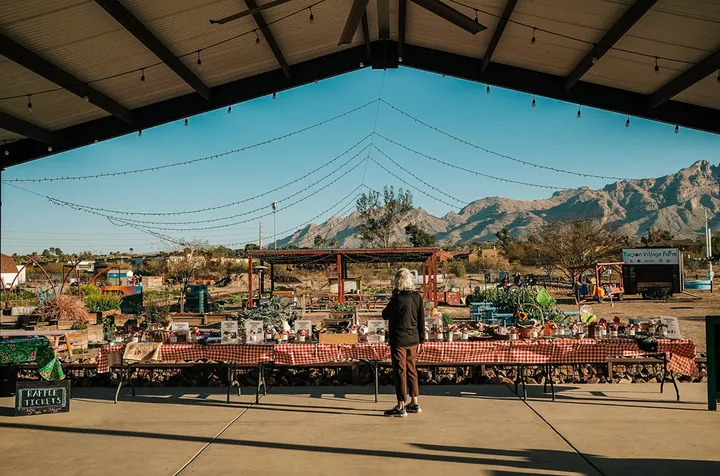Author preserves legacy of Tucson’s Chinese grocers in new bilingual history
Dr. Howard John Eng’s new book documents the history and lasting impact of Chinese-owned markets that once shaped Tucson’s neighborhoods and community life.
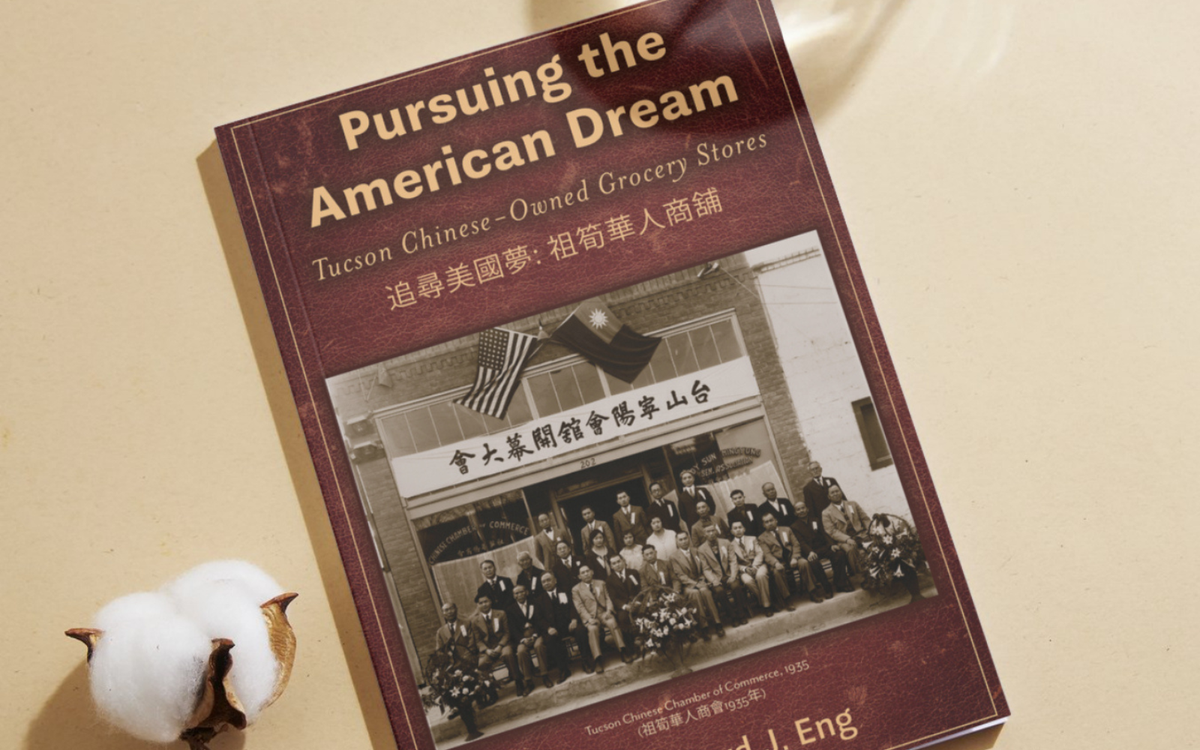
When Dr. Howard John Eng returned to Tucson in the early 1990s, he found that the corner grocery stores once run by Chinese families, the heart of his childhood community, had quietly disappeared.
What began as an effort to preserve their memory grew into a decades-long project, culminating in his new bilingual book, “Pursuing the American Dream: Tucson Chinese Owned Grocery Stores.”
Through stories, photographs and history, Eng’s work honors the immigrant families whose small stores helped shape Tucson’s neighborhoods and identity.
Eng pursued higher education at his parents’ urging, earning a master’s degree in sociology from the University of Florida. While Tucson looked unchanged when he returned home, he said the city he grew up in felt entirely different.
The Chinese grocery stores that had anchored his neighborhood and surrounding areas were gone, along with the families who ran them. People Eng had known since childhood had disappeared from his life, and younger members of the community were forgetting all about this part of the city’s history.
“I came to realize that the kids of my generation and the newcomers who are of Chinese descent knew very little about the Chinese community, in terms of the grocery store,” Eng told Tucson Spotlight.
So he began to write.
The effort evolved into a book preserving the legacy of Tucson’s Chinese grocers and their American Dream, a community that had played an important role in shaping the city but has since been forgotten.
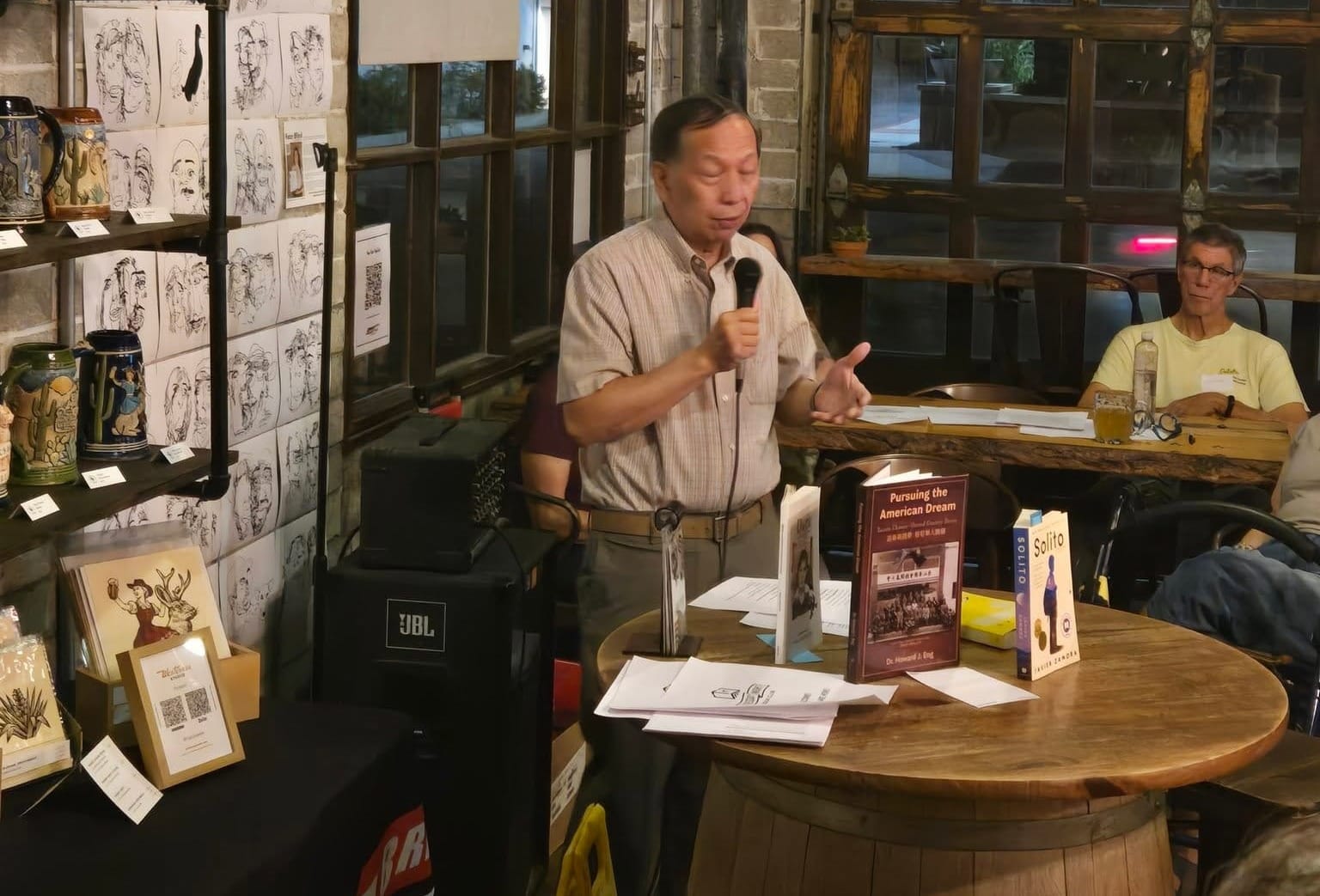
Eng chose to publish the book in both traditional Chinese and English to honor the community’s past and help preserve its language and heritage for younger generations.
On May 15, after decades of writing, Eng’s book was published, with all proceeds from its sales benefitting the Tucson Chinese Cultural Center. The center, which serves as a gathering place for cultural events, seniors and children’s education, will celebrate its 20th anniversary this month.
The book’s reach has also extended beyond the center, finding a place in schools, libraries, homes and events across the city.
Thomas Tronsdal runs the Tuesday Night Book Club, a community reading group focused on books by or about underrepresented voices.
During each discussion, Tronsdal brings in a speaker from the community the book represents. He came across Eng's book after reading a different title by another Chinese author.
“We’d been reading a novel by R.F. Kuang, a Chinese American author, and I was looking for someone from the Chinese community to come speak,” he said. “(Eng) wasn’t there to promote his book, necessarily. He was there to talk about the Chinese community in Tucson, and that’s what made it special.”
Eng spoke to a crowd of about 25 during the group’s September meeting, the space buzzing with quiet interest as he began to speak about Tucson’s Chinese community, a history many had never heard before.
A lifelong Tucsonan, Tronsdal said he learned about a part of Tucson’s history he’d never known.
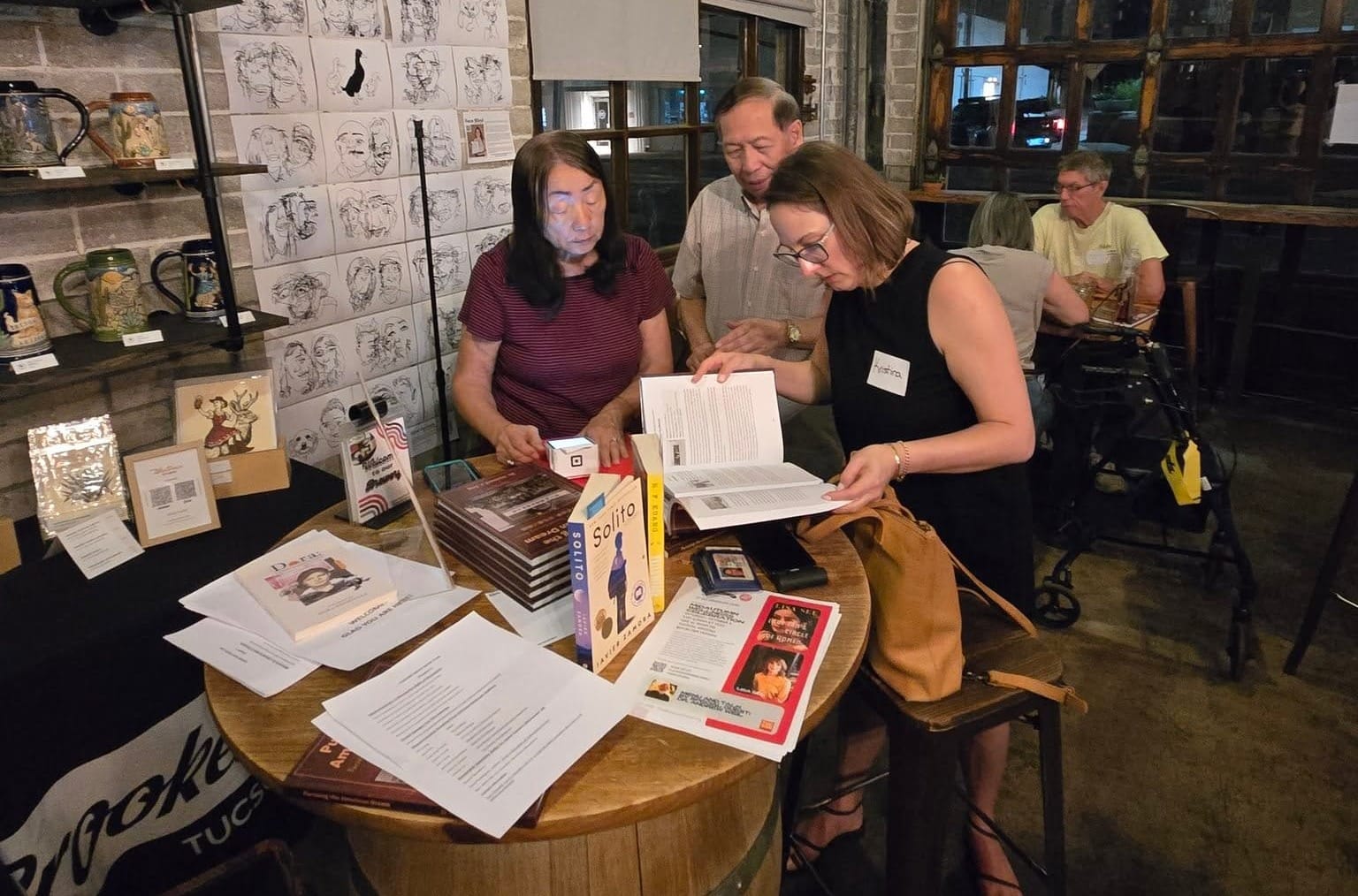
And while Eng wasn’t there to promote his book, his talk resulted in a handful of sales, as several attendees lined up to buy copies on the spot.
“People wanted to read what he’d written and learn more about what he researched,” Tronsdal said.
From the late 1800s through the 1930s, Tucson’s Chinese immigrants began moving away from farm work and into entrepreneurship, opening small grocery stores throughout the city’s barrios. By the 1940s, approximately 100 Chinese grocery stores graced the streets of downtown Tucson.
These grocery stores weren’t just places of business; they were homes, community centers and bridges across cultures.
“Growing up, the store wasn’t separate from our home. The only thing dividing the two was a door,” Eng said.
Inside those narrow aisles and backrooms, generations of Chinese families built their futures. Parents worked long hours behind the counter so their children could go to school, pursue higher education and move into new professions. When the children weren’t in school, they were behind the counters, doing homework between ringing up customers.
“My parents opened their store from 9 a.m. to 9 p.m., seven days a week. On holidays, they had no vacation,” he said, a wistful look in his eye. “They worked hard, like most immigrant parents. They sacrificed a lot for their kids so their kids can go and do other things. That’s part of the American dream.”
The book isn’t just about Eng’s family, it’s about an entire community’s history.
One section features more than 40 short stories and old photographs from families who once owned grocery stores. Together, these accounts paint a picture of daily life: family routines, neighborhood connections and the everyday challenges of running a local grocery store. For the families and community members who remember them, the stores were more than just places of work.
In one excerpt, the children of Johnny’s Complete Foods, also known as Johnny’s Market, recall,
“The store served as a gathering place for neighborhood children and parents; you could always find them there.”
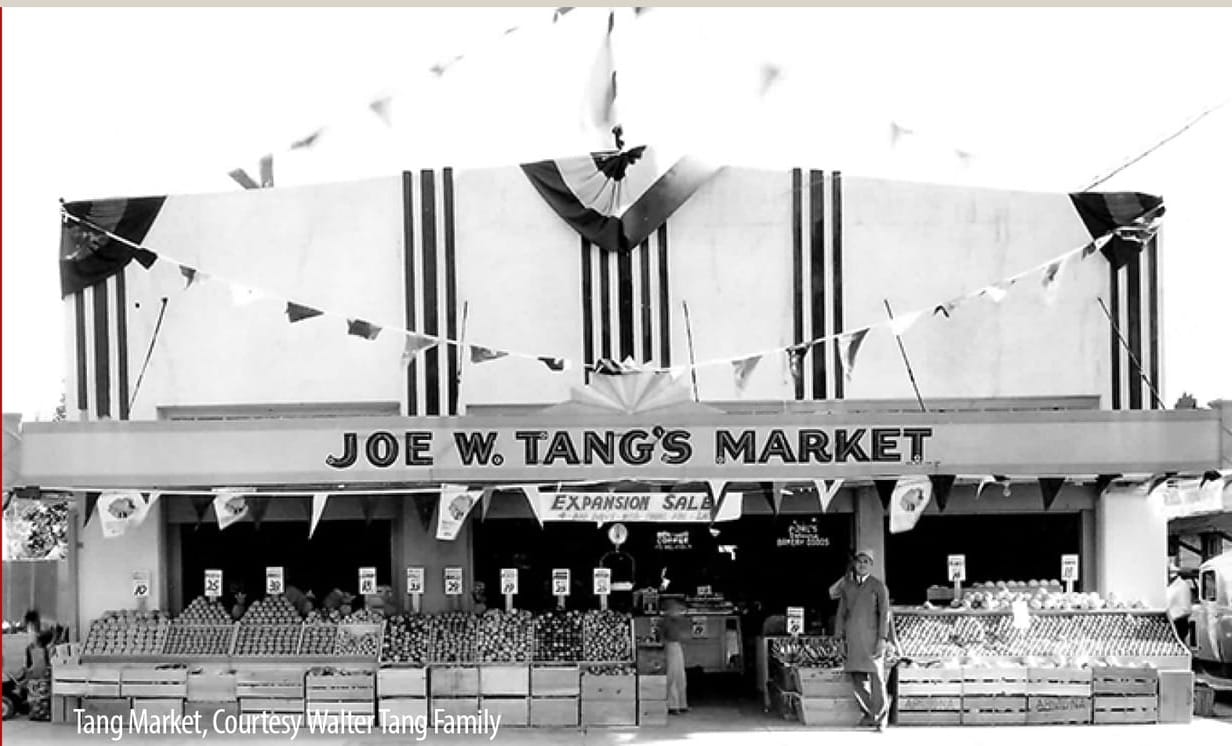
At the same time, the book doesn’t shy away from the harder reality of displacement. Many of the Chinese-owned stores that once thrived along Congress Street were forced to relocate when redevelopment projects reshaped downtown Tucson, fracturing a close-knit community that had flourished for generations.
One example of that displacement is the community’s former Chinese Cultural Center, which once stood downtown in a spot that now houses D2 Dispensary.
The new Tucson Chinese Cultural Center, though larger and architecturally symbolic of Chinese heritage, sits more than six miles away on the city’s outskirts, far from the heart of the neighborhoods it once served.
Eng reflected on the role of the cultural center in keeping the community connected, even as it was pushed from downtown to the edges of Tucson.
“The first cultural center was basically internal to the Chinese community,” Eng said. “The center was a catalyst that kept the community close together. We celebrated Chinese New Year, held school, and shared both Chinese and American holidays.”
Today’s Tucson Chinese Cultural Center, though farther from the city’s core, is more accessible to the broader public and actively shares both the culture and history of Chinese Americans. Eng hopes his book reflects the center’s mission of honoring the past while opening its doors to the future.
“The book is written for the Chinese community in a sense that it’s an opportunity for the Chinese community to remember what was before,” Eng said. “I think it's important that others recognize the Chinese community because the Chinese have been in Tucson for 150 years. I mean, if you took a survey, I doubt too many people would know that.”
A single book can’t capture every life, story or sacrifice, but for many members of Tucson’s Chinese community, it brings back the memories of those vanished grocery stores, preserving the culture and lives that Eng first noticed were missing when he returned to Tucson decades ago.
“Pursuing the American Dream: Tucson Chinese Owned Grocery Stores” is available for sale on the Tucson Chinese Cultural Center's website and on Amazon.
Sarah Arellano is a journalism major at the University of Arizona and Tucson Spotlight intern. Contact her at saraharellano@arizona.edu.
Tucson Spotlight is a community-based newsroom that provides paid opportunities for students and rising journalists in Southern Arizona. Please consider supporting our work with a tax-deductible donation.


